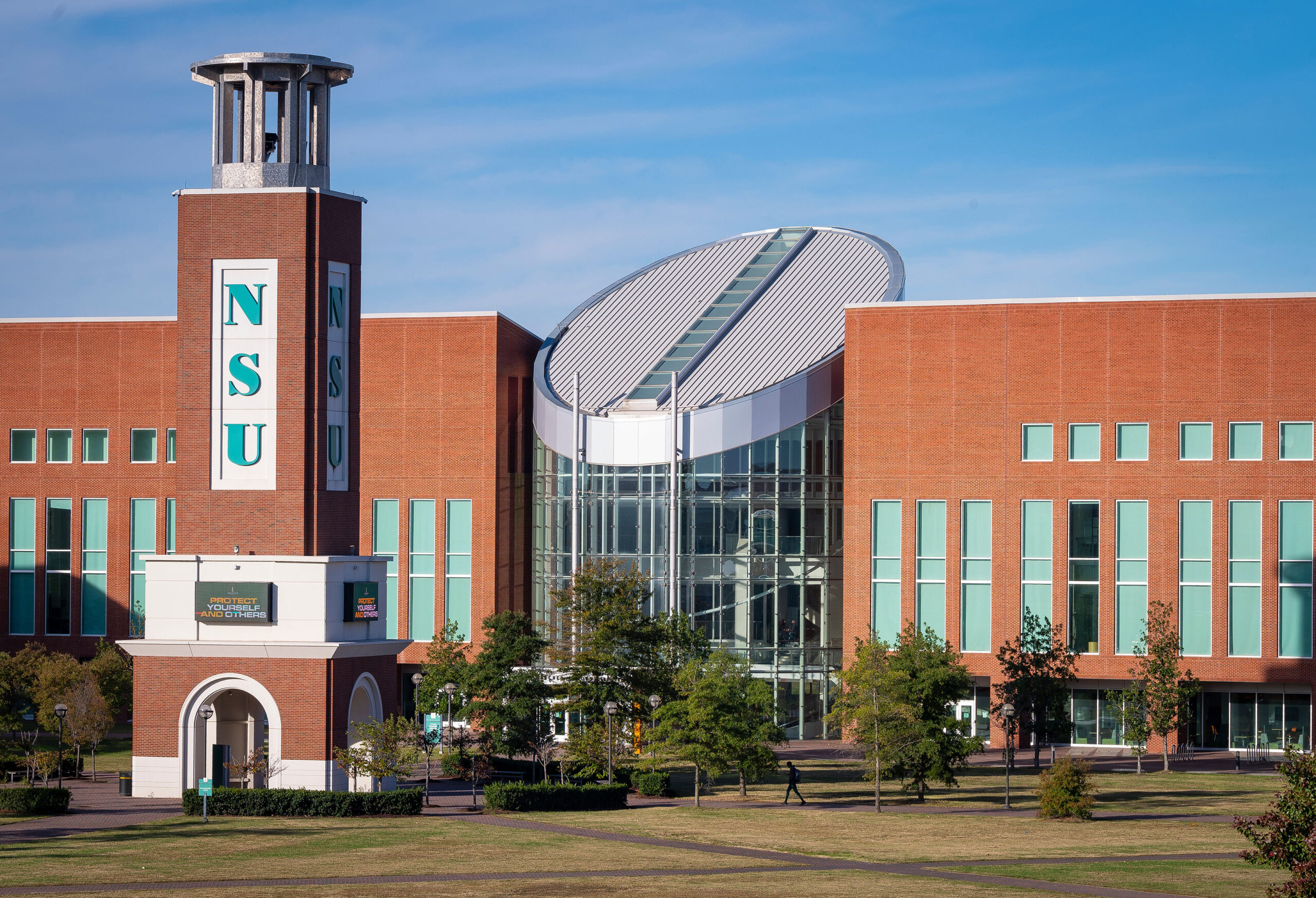Courtesy of Norfolk State University
When the COVID-19 pandemic forced educational institutions to shut down on-campus, face-to-face learning, it provided Norfolk State with an avenue to respond to the challenge of delivering teaching and learning in a way that was innovative, proactive, and transformative.
Teaching and learning continuity had to ensure access to the necessary educational tools for students to succeed at NSU and for faculty to deliver the excellent instruction and curriculum that is offered on campus and from afar.
Building on NST eaching and learning continuity had to ensure access to the necessary educational tools for students to succeed at NSU and for faculty to deliver the excellent instruction and curriculum that is offered on campus and from afar. Building on NSU’s participation as a community coding center through the HBCU C2 national teaching and learning initiative, an Apple-supported program focused on empowering HBCUs to bring coding and creativity to their campuses and communities, NSU utilized learning outcomes from that 2020 program to create the new initiative. The Spartan Innovation Academy successfully piloted with first-year students over the 2019-20 academic year.
It was fully launched in the Fall semester of 2021, providing students, faculty and staff with access to industry-leading Apple technology that included the iPad Pro, Apple Pen, Apple SmartKeyboard Folio and Air Pod Pro with noise cancellation, as well as specialized training for app development.
With that undertaking, NSU became the first Historically Black College and University to facilitate a campus-wide deployment of Apple devices to all students in that first year. Since then, over 7,000 devices have been distributed to students, faculty and others.
Just recently, Norfolk State University was celebrated as a 2023-2026 Apple Distinguished School. The announcement, made during the University’s Board of Visitors meeting, recognized the University’s innovative approach to using Apple tools to teach and motivate students and provide them with opportunities to create their own innovative approaches to learning and engagement. Our continued partnership with Apple continues to benefit the entire campus.
We have experienced the usage of the devices of nearly all of our students and increased faculty usage integration of Apple devices in the classroom to connect and engage with students in new and innovative ways.
A survey of our students showed that the majority used their iPads daily or every other day “The iPad and Apple pencil have enhanced the teaching and learning experience at NSU. Faculty can give interactive lectures and teach directly from their iPad, projecting their screen instead of using the traditional whiteboard.” —Dr. Rhonda Fitzgerald for studying, notetaking and entertainment. They also used the Apple pencil when notetaking. The students expressed that the Apple products helped them to be better organized, and they enjoy the mobility of the iPad and the convenience of connecting all their devices.
“It helps me to keep everything organized. As a Freshman, there were a lot of changes to get used to. The iPad helped me capture a lot I needed to remember,” read one student comment.
“I am able to stay current with assignments and up to date with my emails to my Professors,” another student commented.
For several students, the iPad provided them with a device or replaced an aging, outdated device. “Without it, it would make life difficult in completing my work,” wrote one student whose computer had become outdated. “I didn’t have a device to do homework before I got an iPad,” commented another student.
Early adopters such as Dr. Rhonda Fitzgerald, Professor of Math and the Director for the Center for Teaching and Learning, have been a model exemplar of device integration. She provides development and training opportunities regarding the usage of the devices in learning spaces in collaboration with the University’s Apple Professional Learning Specialist, Jeri Brown.
“The iPad and Apple pencil have enhanced the teaching and learning experience at NSU,” said Dr. Fitzgerald. “Faculty can give interactive lectures and teach directly from their iPad, projecting their screen instead of using the traditional whiteboard.”
“This not only allows the professor to be mobile in the classroom but also allows them to share lecture notes with the students by airdropping or posting them to our learning management system.” Additionally, the Apple pencil allows faculty to provide feedback digitally in multiple ways, she said. “Professors can annotate directly on a work submitted digitally and or provide step- by-step feedback with videos created using various applications.”
According to Dr. Fitzgerald, students love the personalized feedback that is easy to create with Apple technology. “The iPad has been a valuable tool for creating accessible content for students with diverse learning needs. In addition, it offers flexibility in how content is created. Professors can create video lectures and other multimedia materials with ease and adapt their teaching methods to suit our many students with different learning styles.”
One of the actions that seemed to impress Apple in the decision to award the designation is that the University built its program in two years, rather than the standard four to five years that it takes many colleges and universities because NSU President Javaune Adams-Gaston insisted on rolling the program out in one piece instead of small increments.
“A lot of this was born out of the COVID pandemic where we were watching our students struggle with trying to do their courses on their phones and not have the tools needed,” said Dr. Adams-Gaston. “But tools are just a part of it. We’ve always said that this is about the learning, the faculty’s engagement in the learning and the way that they use the tools with the students in order for them to have the kind of learning that we think is learning of the future.”

